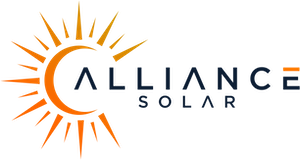

The Answers About Solar Power You've Been Searching For
Solar energy harnesses the sun’s rays, converting its light photons into usable electricity for your property. Special cells in solar panels trap that power where it then flows through wiring to a circuit box or battery bank. Net metering sends that power back to your local utility company. Your utility company then credits your electric bill based on how much power those panels produce.
Renewable energy refers to an energy source not depleted when used. For example, wood gets depleted or "used up" when burned, so it's not considered renewable. On the other hand, you don't "use up" or consume sunlight with solar panels. So, in turn, solar is an excellent example of renewable energy!
Light photons interacting with silicon in a solar panel produce DC or direct current power, or electricity that flows in one direction. However, household appliances and electronics run on AC or alternating current power.
Your solar power system needs an inverter. This inverter changes or converts DC power into usable AC electricity. Without an inverter, that power produced by solar panels would be virtually worthless.
When atoms along the sun's surface collide, this process creates energy. That energy holds electromagnets and light photons. These photons are what illuminate things as the sun comes up. When harnessed and inverted, those electromagnets supply usable electricity.
Solar energy reaches the earth in waves. Special cells in solar panels receive those waves, starting the electricity generation process. Next, that electricity flows through the inverter, changing it from DC to AC power. Afterward, that energy flows through a property's circuit back to the property and to local utility companies or a battery bank.
When solar energy reaches a solar panel, that energy hits a silicon sheet. Photons or light particles in that energy knock electrons off silicon atoms. This process creates DC power.
Your inverter then changes that DC electricity into usable AC power. Solar panels don't hold or store that energy, but they get sent back to your local utility company, crediting your bill. In some cases, battery banks store it.
Solar panels are an excellent investment for any property! Investing in solar means fewer pollutants created by electrical power plants. Solar also reduces and potentially even eliminates your electric bills.
Buildings with solar also tend to increase in property value and sell faster on the real estate market. Solar panel installation is also a labor-intensive job you cannot outsource. In turn, you support your local economy when you choose to go solar.
Investing in solar is a great way to help save the environment. While electricity doesn't create pollutants, power plants produce tons of fumes and emissions every year. By switching to solar, you are reducing the contaminants for which you're responsible.
Not only is solar helpful to the environment today, but choosing solar means leaving a cleaner, greener planet to future generations. Your solar panel installation might also encourage neighbors to consider solar and other options for reducing their carbon footprint.
Solar panels trap light photons from the sun. They create electricity on cloudy or overcast days, just not as much as they would on bright, sunny days. Note that solar panels work in wintertime, during windstorms, and in other inclement weather. Their effectiveness relies on sunlight amounts, not temperatures.
While solar panels work in virtually any weather, remember that maximum sunlight exposure means more power from those panels. Therefore, always choose professional solar panel installation. Experienced contractors tilt those panels as needed for the most sun exposure. They might also note obstructions requiring removal, such as overhanging tree branches.
Unfortunately, solar panels themselves don't store energy. Instead, their process is like an extension cord, moving electricity from one point to another. So if you want to keep energy from solar panels, you need a battery bank. Solar batteries store power produced from solar panels, just like rechargeable household batteries.
One word of caution; not every area allows property owners to disconnect their structure from local utilities completely. If you're curious about local regulations and codes in your neighborhood, give us a call! We'll work with you to create the best solar solution for your property.

